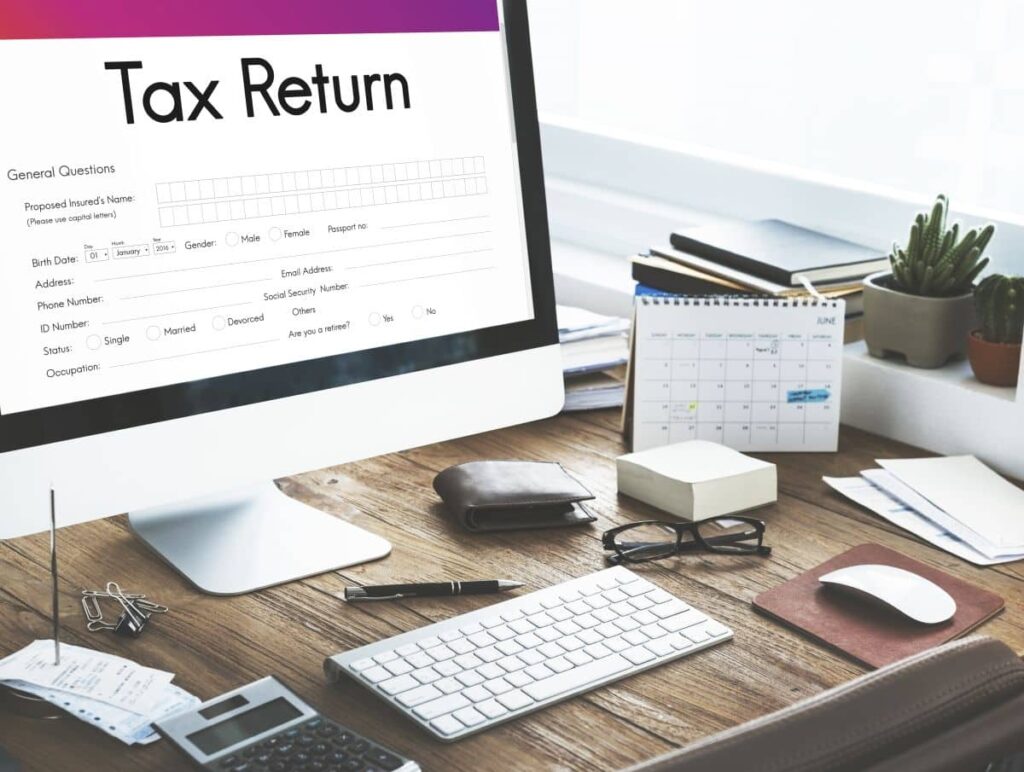If you’re considering tying the knot, there are a whole host of considerations to take into account - finding your perfect partner is only half the battle!
But let’s face it, financial planning isn't usually top of anyone's list when they start talking about matrimony.
After all, what could be more boring than tax and filing returns?
Well, we're here to tell you that getting your finances in order early will help make sure your dreams can become a reality - both now and in future. First, we'll take an overview of marriage and taxes: how different tax statuses within Australia affect couples financially, what benefits exist for married folks from a taxation perspective - and how the answers to those two questions might affect major life decisions down the road.
Let's get started!
If You Are Getting Married, Here's What It Means For Your Taxes
The arrival of spring heralds the arrival of "wedding season," when many people get married. Across Australia, hundreds of couples will be looking forward to their upcoming weddings. Still, there is a good probability that very few of them will have paid any attention to the very major tax repercussions that could result from their new married status.
The excellent thing is that all of the laborious tasks have been completed by us. As a result, this is a comprehensive guide to everything you want to know about the tax implications of getting married.
Getting Married: The Basic Tax Implications
- If you are married, you are exempt from the requirement that you file a joint tax return (as happens in some other countries). However, every spouse's tax return requires separate documentation of their share of the joint income.
- You are required to indicate on your tax return that you now have a spouse, and you are also required to report each year the amount of taxable income the spouse earns.
- Your merged income is considered when determining Family Assistance Office benefits like family tax benefits. This is also the case if you do not have private health insurance (in this case, you may be required to pay the Medicare levy surcharge, which is equivalent to an extra 1.5% tax if you are a high-earning couple) and if you do not have private health insurance.
- If you decide to go through with changing your name, your information will need to be corrected before you can submit your tax return. Online or over the phone are the two most convenient ways to accomplish the task. You will need documentation like your birth certificate or marriage certificate in order to establish your identification with the ATO when you do this. If you do not have these documents, you will not be able to proceed. As was previously the case, you will not be able to tell the tax office by merely making a note of it on the front cover of your subsequent return.
Do I Have A Spouse Or De Facto Partner?

According to the Australian Taxation Office (ATO), the term "spouse" refers to another individual (of either sex) who:
- you were involved in a relationship with someone who was required to register under the laws of a certain state or territory
- despite the fact that you aren't officially married to each other, they lived with you on a legitimate domestic basis as a couple when you were together.
You are required to include in your return a full accounting of any taxable income received by your spouse, including the following items:
- salary and wages
- dividends
- interest
- rental income
- foreign source income
- pensions and child support payments.
In the context of the tax code, a spouse is more than just a husband or a wife. It also includes a partner with whom you share living arrangements.
It makes no difference if you choose not to discuss your financial situation. However, you have an obligation to come clean if you are cohabitating with someone and are in a committed relationship with that person.
This also encompasses a relatively new partner with whom you've lived for a brief amount of time (for example, a few months), as well as a partner with whom you formerly shared living quarters (e.g. you broke up at some point in the financial year).
You are required to include the beginning and ending dates of the relationship on your tax return.
Are You In A De Facto Relationship?
According to the Australian Taxation Office (ATO), a de facto relationship is one in which you and your partner, regardless of their sexual orientation:
- live together in a legitimate domestic capacity as a couple while maintaining a romantic relationship,
- you and your significant other are not considered to be married under the law, nor are you in a registered partnership.
There is no prescribed minimum amount of time for a relationship to be considered de facto, as stated by the Australian Taxation Office (ATO). However, when it comes to taxes, you must be mindful of the following information if the first two items above apply to your relationship.
Which Pieces of Information Do You Require From Your Partner?
After you have responded "yes" to the first question, you will be required to provide more information about your spouse, including their name, date of birth, gender, and income.
The ATO would appreciate as much information as you can provide regarding this final point, including what they earned, how much they paid in superannuation, whether or not they experienced any losses in their investments or property, and so on. This is not the end of the world, however, even if you are unable to gain access to all of it.
If you find yourself in a situation in which you just cannot obtain such data, you should make sure you have a decent estimate. In addition, if you are trying to decide what steps to take, you always have the option of seeking guidance.
This recommendation can come from an accountant or even directly from the ATO. You can utilise the live chat feature on the ATO website, or you can phone the hotline at the number 13 28 61.
The good news is that nobody is going to make you track down your horrible ex in order to get information on their contributions to the super team.
As long as you behaved in a reasonable manner and it was done in good faith, you won't be punished even if your estimate turns out to be inaccurate.
What Kind Of Impact Will This Have On My Tax Return?
There are some repercussions that could be applied to your taxes, particularly in the areas listed below.
1. Private health insurance rebate
It is possible that the level of rebate that you receive as a couple will be different from the level that you received when you were filing as an individual because the amount of rebate that you qualify for depends on your income.
2. Medicare levy surcharge
A Medicare levy premium is applied to those with high incomes who do not have private patient hospital coverage.
If you are married, the Australian Taxation Office will calculate your Medicare levy surcharge based on both of your combined incomes. In addition to the Medicare Levy, this tax is deducted as a percentage of your taxable income (up to 1.5%), and it must be paid each year.
If you do not have private patient hospital cover and your income is over the following thresholds, you may be required to pay the Medicare levy premium.
- $90,000 for singles
- $180,000 for families.
Be sure to check whether or not your combined income places you beyond the income level if you recently got a spouse for tax purposes and you do not have private patient hospital cover. This is especially important if you are recently married. If you have private patient hospital cover, you won't have to pay the additional fee, and you'll be protected in the event of a medical emergency.
3. Medicare levy reduction
Low-income earners are eligible for a decrease in the Medicare fee, which is another benefit. In addition, if you're married to a spouse and your family's taxable income is less than or equal to $48,092, you may qualify for a decrease in your tax burden.
Is This A Joint Tax Return?
Nope! In no way, shape or form is this a joint tax return.
You and your spouse will each be responsible for paying income tax based on the money that you make. Your spouse will pay income tax on the income that they generate.
Do not let the fact that your partner makes more money than you stress you out. You are not going to be accountable for paying the bill that they have racked up.
Combining Your Homes?
When one spouse moves in with the other, the potential impact on the capital gains tax (CGT) exemption on the primary house is a factor that is sometimes neglected to be considered.
For example, if you and your partner each owned and resided in your own house before living together; if you are in a committed relationship but lived apart during the year; or if you intend to sell one or both of the residences, there may be capital gains tax repercussions.
When you are completing your tax return, you should seek the guidance of a tax professional because determining your CGT duties might be difficult.
Tax Deductible Wedding Gifts? Show Me How
They are eligible for a tax deduction for the gift as long as it is given to a charity that is registered as a Deductible Gift Recipient, which is the case if your guests decide to give money to a charitable organisation of your choice as a wedding gift. Learn more about the recipients of deductible gifts here.
Same-Sex Couples And Tax
The concept of "spouse" has been broadened so that it now encompasses both de facto and registered relationships in addition to the traditional meaning. Your "spouse" is another individual, whether they are of the same or opposite sex, which satisfies the following criteria:
- is registered as being in a relationship with you under the laws of a state or territory and is in a relationship with you
- despite the fact that you aren't legally married to each other, this person lives with you as a legitimate domestic partner in the context of your relationship as a couple.
This means that individuals who live together with the same sexual orientation are now subject to the same tax regulations as couples who are of different sexual orientations. They are now subject to identical regulations in areas like these:
- Medicare levy reduction or exemption
- Medicare levy surcharge
- main residence exemption for capital gains tax
Save Money By Teaming Up
If there is a significant disparity between the amounts of income that each of you brings in, you may be able to reduce your overall tax burden and, as a result, save cash. For example, relocating all of your cash reserves into a joint account and dividing the interest between you and your partner 50/50 could help you pay less tax on the interest you earn if you earn more than your partner. Still, you both have investments in separate high-interest bank deposits. If this is the case, you could pay less taxes if you moved all of your cash reserves into a joint account.
What Happens If You Don't Declare Your Partner's Income?
The most important thing to remember is that you shouldn't just put nothing. You can't just brush it off.
The ATO has access to a vast amount of information. Therefore, the submission you have made may be revised in the future, and you may run into difficulties as a result of the information that you have left out.
If you make a declaration on your tax return that is incorrect or misleading, you could face a variety of penalties; however, the ATO is here to assist you.
In the event that individuals have enquiries, they are more than delighted to respond to them... And if you did make a mistake, you need to go through it with them and either rewrite it or rectify it.
What Occurs If You and Your Partner Never Discuss Financial Matters Together?

If you and your partner keep your finances separate from one another, discussing your total income could be an awkward proposition for you. Will they consider it to be too little? Are you sure? Will there be more tension as a result of this?
In most cases, it's beneficial to have a conversation regarding financial matters. However, you don't have to jump right into the numbers and start analysing them. If you're feeling anxious about taking that first step, the following are some discussion openers you might use.
And if you are concerned about being judged because of your low income, it is important to keep in mind that having a higher income does not make one more deserving of love or admiration.
Keeping up these dialogues beyond the tax season can also be beneficial to everyone involved.
Are there any obligations that you ought to be aware of? What kinds of monetary objectives do the two of you want to accomplish? If you and your partner decide to share finances in the future, does your partner have any preconceptions?
It's possible that these will be challenging conversations. People frequently have a variety of complicated feelings around monetary matters, and it's not always simple to talk about them. However, asking a few questions to learn more is a fantastic way to get started.
Ask For Help
You always have the option of calling a registered accountant for assistance if going through your tax documents feels like you're trying to learn a foreign language. A trustworthy accountant can guide you through the steps necessary to file your tax return in the correct manner as well as point out areas in which you might be able to cut costs.
An accountant can guide you through the process of formulating a sound strategy for handling your taxes and even help you identify creative ways to increase the amount of money you keep from your hard-earned earnings.
Frequently Asked Questions
Including your spouse's income is important as we use it to work out whether: you are entitled to a rebate for your private health insurance. you are entitled to the seniors and pensioners tax offset. you are entitled to a Medicare levy reduction.














